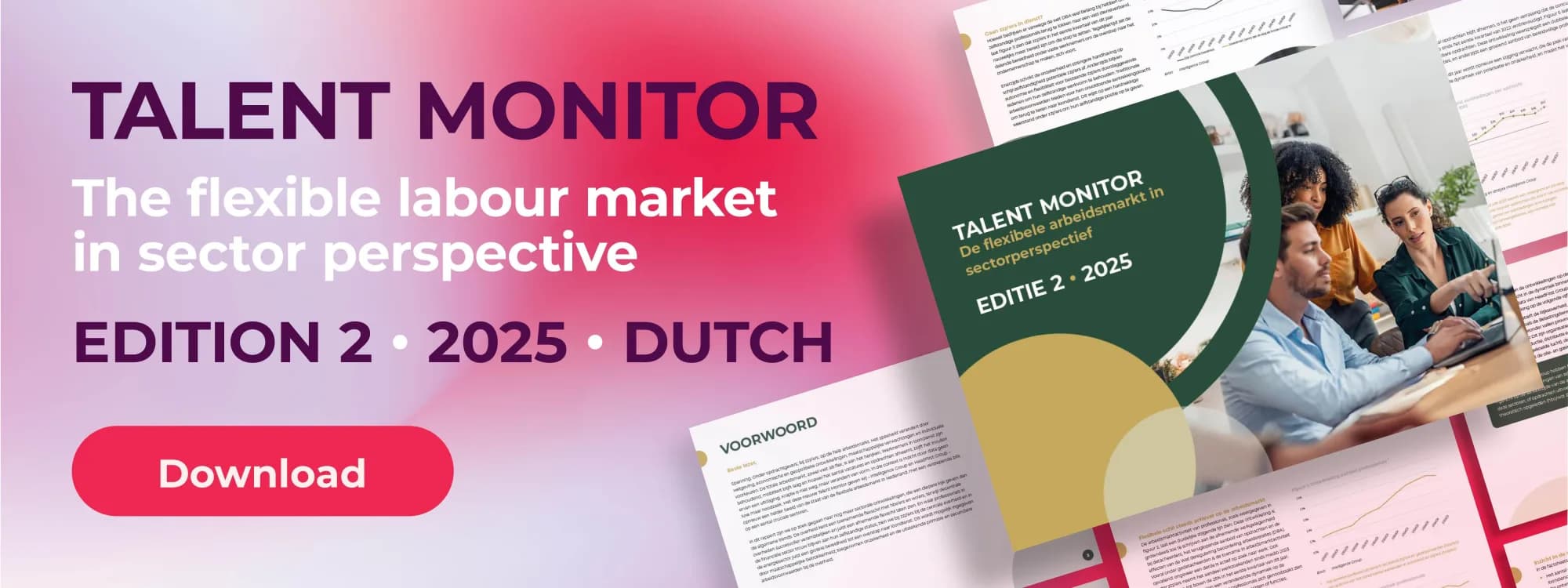The job market within the local government is shifting. While the central government is seeing an increase in the number of independent professionals, the opposite is happening in municipalities, provinces and water boards. The share of flexible professionals decreased from 13 percent in 2022 to 12 percent in 2025. This may sound like a small difference, but it has noticeable consequences for the dynamics within teams and projects.
An experienced but ageing population
The sector has a relatively older and more experienced population: 60% of professionals are over 45 years old. The average work experience in this sector is high: 65% of professionals fall into the 'senior' category. This has advantages, as experience leads to quality and stability. At the same time, there is also a risk. The influx of younger professionals is lagging, while the demand for fresh perspectives and new skills is increasing. Without targeted policy, there is a threat of an increasingly one-sided composition of the workforce.
Low interest in permanent employment
Since 2024, the number of assignments within the local government has been declining and fewer professionals are offering themselves. This double shrinkage leads to a visible shortage of deployable professionals for temporary assignments. At the same time, in this sector, the willingness of independent professionals to return to permanent employment is low. Only 7% would like to work permanently (again). 31% are unsure, but a clear majority of 62% are not interested in permanent employment. The sector therefore strongly relies on independents who consciously choose their own management. To attract this group, a permanent contract no longer suffices. Employers must therefore respond to the need for space, flexibility and independence.
Rates rise, but differences remain
The average rates in the local government have shown strong growth. In 2025, the average is above 100 euros per hour. However, this does not mean that all professions benefit from this. There are significant differences per function:
- ICT managers earn on average 1 euro less than the average market rate.
- Managers in business and administrative services fall behind by 9 euros.
- Policy advisors earn an average of 14 euros less per hour.
- Business and organisation advisors lag behind, earning 15 euros less than market rate.
These differences make the sector less attractive for certain specialist professionals, especially in a tight labour market.
What does this mean for you?
As an employer within the local government, you face a challenge. The pool of professionals is getting smaller, the ageing population is increasing and the rates are rising. This requires a smart approach:
- Actively focus on an attractive rate policy, especially for scarce profiles.
- Offer challenging assignments with social impact, which appeals to independent professionals.
- Set up recruitment processes flexibly, so you can quickly adapt when the market changes.
The job market of the future requires agility, creativity and good employment practices. Those who respond to the wishes of independent professionals remain able to attract the right expertise.
Do you want to know exactly what is happening in the flexible component of the local government? The Talent Monitor provides you with current insights and trends. The market forces you to be sharp, but also offers opportunities to make a difference.

